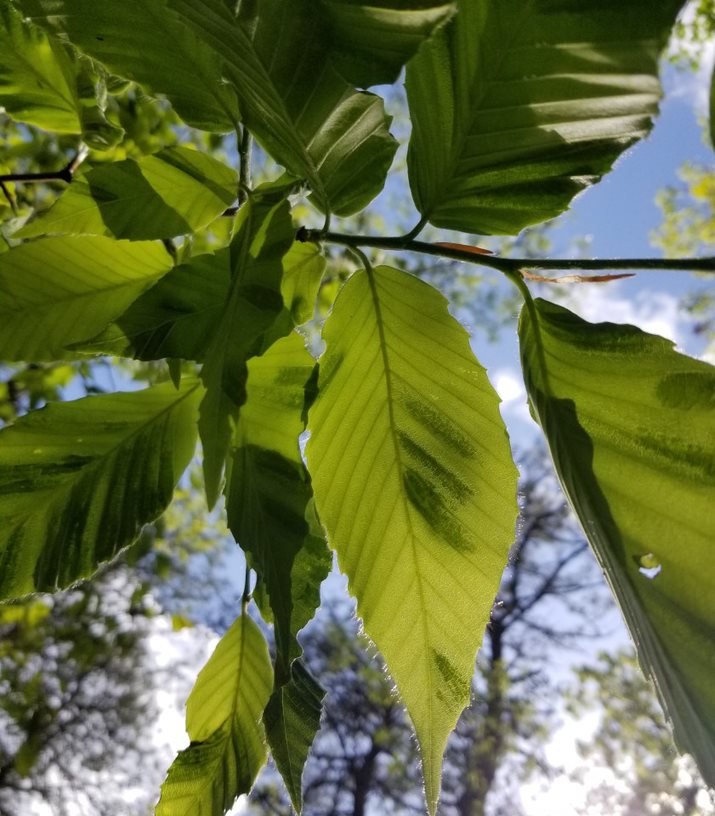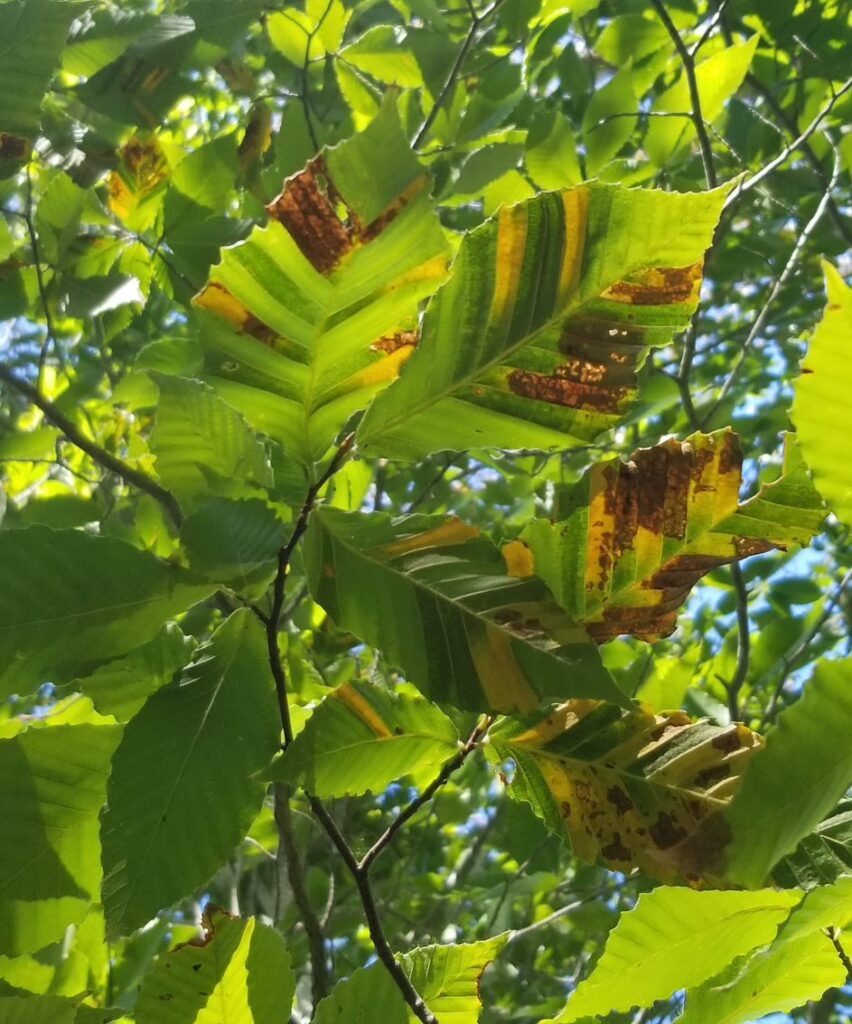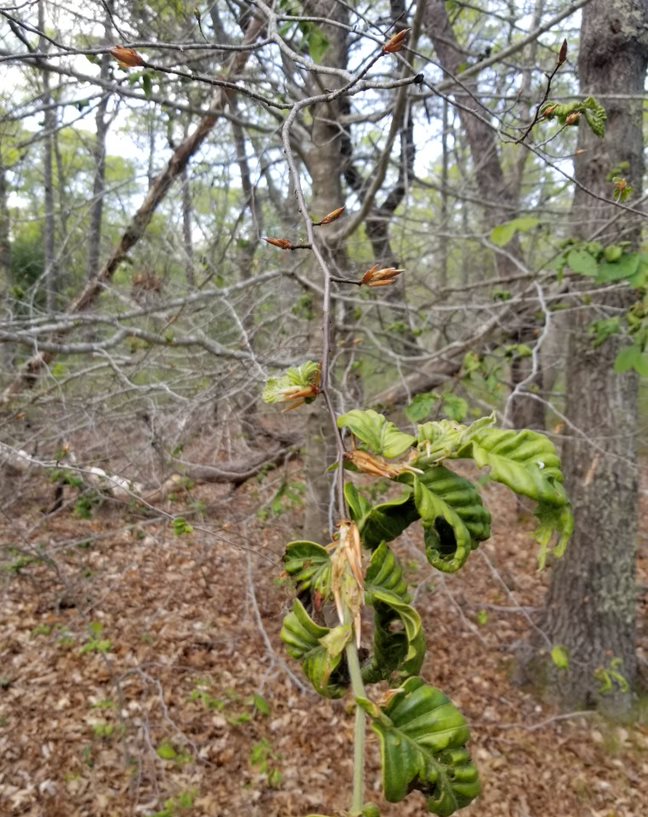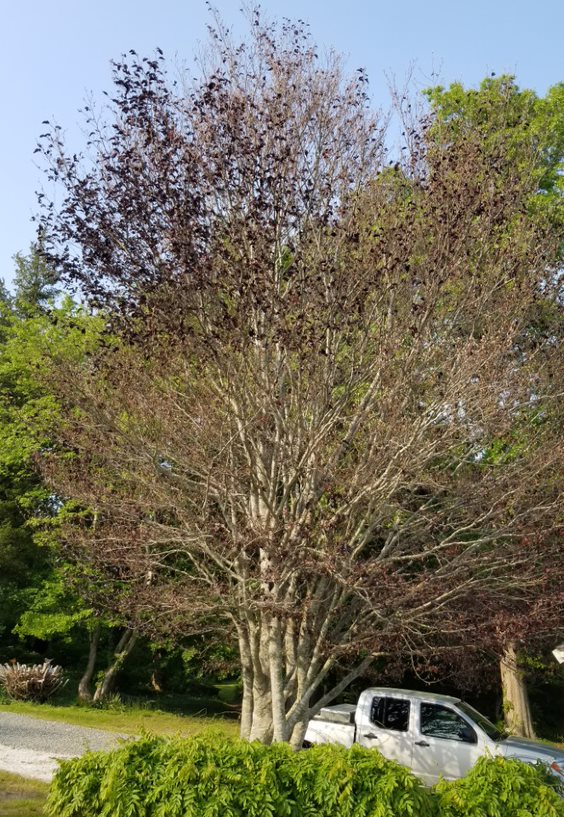
Beech Leaf Disease
Beech leaf disease (BLD) is a disease caused by a foliar nematode that impacts American beech, Fagus grandifolia and European beech, Fagus sylvatica. Beech leaf disease has spread quickly in the Northeast after first being detected in Ohio in 2012. The disease was found in Massachusetts in 2020 and confirmed on the Cape in 2022.
Beech leaf disease is caused by the foliar nematode Litylenchus crenatae. Nematodes or roundworms are microscopic worms in the phylum Nematoda. Little is known about the epidemiology of this particular nematode.
Symptoms of beech leaf disease include interveinal banding, dark bands between veins of leaves, easily viewed from undersides of leaves (Fig. 1 & 2). Other symptoms include leaves that are distorted, tattered, leathery, and/or smaller. Symptoms also include damage to buds which are killed and fail to develop resulting in thin canopies (Fig. 3 & 4). Trees with extensive bud damage tend to produce another set of leaves slightly later in the season. Symptoms on copper leaved European beech can be more difficult to detect.


Beech leaf disease on Cape Cod is widespread and has been found in numerous American beech stands as well as on ornamental European beeches in the landscape. Some trees have experienced extensive bud damage and have thin canopies. Beech has other important pests such as beech bark disease which impact tree longevity and forest health. The full impacts of beech leaf disease are not fully understood but some mortality is likely.

There are limited options for managing beech leaf disease. Homeowners with high value beech trees should seek a certified arborist to evaluate potential treatments. Certified arborist can be found using the Massachusetts Arborist Association or International Society of Arboriculture.

Download this information as a fact sheet here.



